As the theatre world revives after a pandemic that devastated the industry, queer theatres around the globe are gearing up to reopen. Xtra chatted with five different LGBTQ2S+ artistic directors on reopening, strategic plans and their upcoming seasons.
Joining the discussion are Fay Nass from the Frank Theatre Company in Vancouver, Stephen Nicolazzo from Little Ones Theatre in Melbourne, John Fisher from Theatre Rhinoceros in San Francisco, Daniel Carter (interim programming director) from Buddies in Bad Times Theatre in Toronto and Megan Carney from About Face Theatre in Chicago. The conversation ranged from lessons learned during the pandemic to commitments to improving equity.
As governments allow theatres to reopen and resume normal (or close to normal) operations, what are you doing to get back in business?
John Fisher: We’re gonna have our season in-person again. We sent out our subscriptions, and most people are coming back. Our emphasis is on the lives of BIPOC queer people because that’s what people want to see in terms of equity and representation. The two plays that we’re doing: At The Wake of A Dead Drag Queen is about two queer drag queens, and the other, How Black Mothers Say I Love You, is about a lesbian going home to her family. They’re both about African-American queer people.
Daniel Carter: We’re taking it pretty cautiously. We’ve been doing a lot of digital work, broadcast and live streaming. We’ve been playing on Instagram Live, and have worked with the CBC. Now we’re getting into more in-house broadcasting, live streaming and sharing. We’re consciously opening up—we’re not going to have 200 people in a room like we used to but we’re creating opportunities for folks to get used to coming back into a theatre space.
Megan Carney: We’re starting slowly this fall. Our education program is still virtual, and it’s going to remain on Zoom with a series of workshops. But we are doing some new play development that will happen in person. We’ll return to live full production in the spring of next year.
Fay Nass: In terms of access, having a digital component is important for queer spaces. The legacy of theatre historically has stopped a lot of marginalized bodies from feeling safe. Having a digital space where theatre can happen and we can produce content to reach out to the larger community felt like something that we want to continue at The Frank.
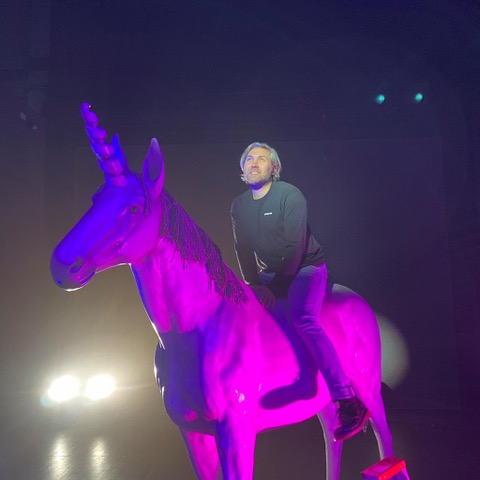
Credit: Kate Cameron
Stephen Nicolazzo: In Melbourne, we’re still in lockdown, with no reopening plans until December or January. We made an audio piece, Loaded, which was a queer work about Greek migrants in Australia. There have been opportunities to do digital events and prepare for when things do relatively go back to a state where live audiences can attend; we did a Madonna club night last year, which was a combination of live streaming and pre-recorded music videos.
What upcoming show are you most excited about and why?
Nass: We’re excited for an upcoming project in the next year and a half to two years called maps of utopia for which we are commissioning writers and creating many mono-series dramas with prominent playwrights in Canada.
Nicolazzo: We have a few things in the pipeline. This year, when we were out of lockdown for five minutes, we were able to stage an epic queer fantasy called Considerable Sexual License, by Joel Bray. We’re getting to tour that hopefully next year—it was this beautiful piece about Aboriginality and queer sexuality and how the two things are affected by colonization.
Fisher: Our first play At The Wake of A Dead Drag Queen is about two trans performers. The next play that we’re doing, How Black Mothers Say I Love You, is about an African-American family. We’re undergoing a huge strategic rethinking of theatre in order to bring greater representation onto our board, our staff and even the playwrights who produce.
Carter: The annual Rhubarb Festival is probably the top of my list. I love a good festival. Beyond that, we’re working with three artists over the next three or four months, and really exploring new things within their own practice: choreographer Michael Caldwell, [multidisciplinary artist] Kitoko and [playwright] Julie Phan. The three of them are channeling and interrogating questions [everything from the meaning of sanctuary and displacement to the division between digital and physical words] within their own personal practices.
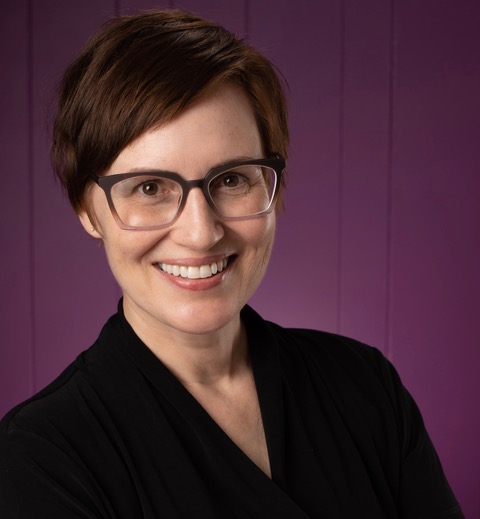
Credit: T.G. Samuel/Starbelly Studios
Carney: Laced by Samantha Mueller and directed by Lexi Saunders, a play that we were about to produce when the pandemic hit. We were in pre-production with this incredible team of artists, and just completely in love with Sam’s vision. The whole play is about how to recover from a traumatic incident and decide to move forward.
What’s your approach to providing space for underrepresented parts of the LGBTQ2S+ community, like trans, non-binary and BIPOC folks?
Nass: I’m a first-generation immigrant, originally from Iran, and a non-binary, woman-identified, queer artist of colour. A lot of it is not only about identity, but about a way of storytelling that differs from body to body, culture to culture. Our main focus is always on female-identified or non-binary and trans artists, especially those who come from different cultural backgrounds and whose lens and aesthetic are outside of the Eurocentric framework.
Nicolazzo: Our creative team is an intersectional group of people. We did a Tennessee Williams play, Suddenly Last Summer, with a beautiful trans actor named Harvey Zielinski playing the bratty, straight little brother. We’re also always batting for female representation as well as femme representation.
Fisher: Our first show (At The Wake Of A Dead Drag Queen) is by Terry Guest. It’s got trans lives and African-American queer lives, and it’s about AIDS—specifically, how AIDS is still hitting the African-American queer community. People think that AIDS is an old subject, but it’s a current issue in certain communities. [The play] hits a lot of important bases—it’s also really funny and joyful, and about drag queens.
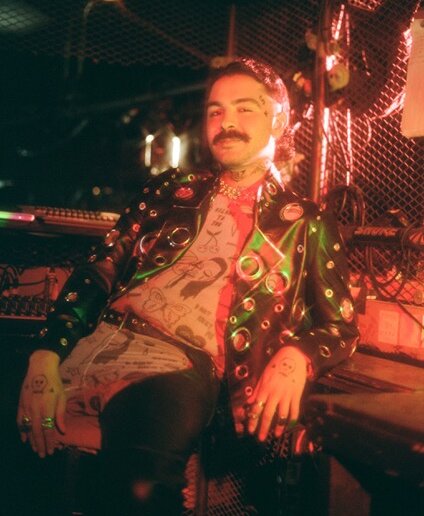
Credit: Dylan Mitro
Carter: There’s no one-size-fits-all kind of approach. When working within specific communities, their needs and wants are going to differ. Part of that requires the company to go out into the community and to start building relationships. There are community groups that are also already doing this work. So there’s additional work there and care put into building those relationships and building trust to welcome folks into a new space.
Carney: As a company, we value shared leadership and the cultivation of authentic relationships across differences. We are always trying to better reflect the amazing nuance and complexity of LGBTQ2S+ communities, looking at who’s behind the scenes and at staff leadership—even down to board recruitment. We’re very intentional about where we post advertisements for new board members and how we interview people. I recognize I’m just one person inside this organization.
How has what you’re doing changed in the last five years?
Nass: We have implemented a lot through a kind of economical and access [lens]. When we did be-longing, we had tickets that ranged from $5 to $70. People could pay what they wanted. Surprisingly enough, we made the same amount of money. We have to stop our assumptions that people want to come to [physical] theatres—there are a lot of systematic barriers that stop them from doing so.
Nicolazzo: We’ve always looked at it kind of in terms of chapters of our growth as a company. When we started, we were interested in kind of bombastic, queer radicalizations of classic texts. We made a work called Dracula, which had a sort of queer femme/female point of view. Then we got to a point where we made Merciless Gods [based on the book by Christos Tsiolkas]. So it’s been a long-standing investigation.
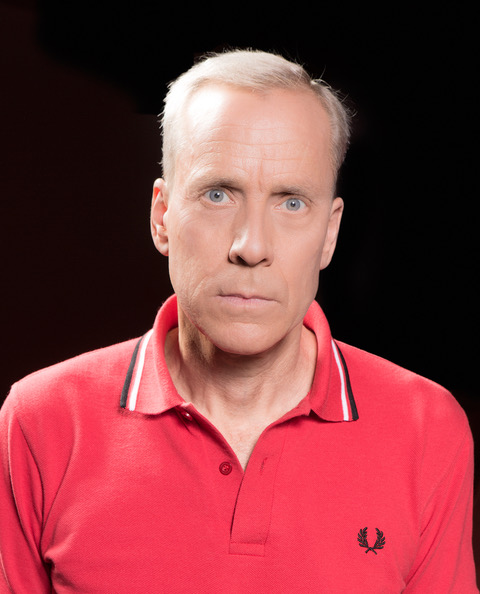
Credit: David Wilson
Fisher: We’re still on the journey. We haven’t, you know, solved all the problems yet. But our product has shifted location; we used to perform in downtown San Francisco and before that, we were performing in the Mission District [a traditionally Latinx neighbourhood in east-central San Fran]. But now we’re going to the queer neighbourhood—nobody had thought before to have this actual queer live experience in the queer live neighbourhood.
Carter: The biggest change would be a shift around our youth programming into intergenerational programming. There was a desire for connection, to create these relationships and to share perspective and knowledge going both ways between the generations. Since 2017, we’ve come out with two seasons of the Youth/Elders Podcast and an ongoing monthly roundtable discussion series that talks about issues from an intergenerational perspective.
Carney: We are a union-affiliated company but going into this year, we made a big jump to close the wage gap between union and non-union actors. We have doubled down on our commitment to the next generation of queer theatre leaders. And we launched a new program called the Green Room Collective, a revision to what had been our internship program.
What do you see in the next five years?
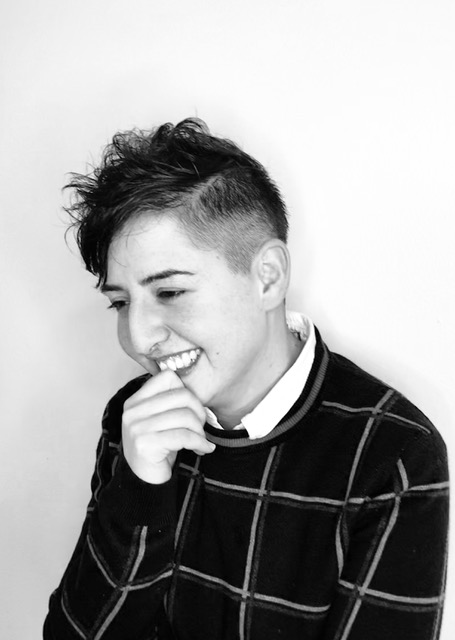
Credit: Diana Garcia Hernandez
Nass: I would hope with the digital work [we’re doing] that things will become more accessible—not only financially, but also with respect to safety. With belonging, on opening night, we had 890 people viewing the show from 11 different countries. I’m hoping that, in the next five years, everyone can have access to diverse stories.
Nicolazzo: Everyone evolves. And as artists, we’ve evolved, too—whether that takes the shape of the company itself, or us as individual artists collaborating with different people. That’s the five-year hope. But ideally, I’d like to keep dredging up and exploring queer history in Australia. We’ve got World Pride coming in 2023, and I dream that we can create a retrospective of every queer performance that has ever been created in this country. That’s my dream.
Fisher: We want to build a much larger theatre—a 200-seat theatre—which would be one of the bigger theatre complexes in the city. In five years, we’re going to realize that, which is great. When the theatre started, it was in the Mission District and it was broke; it was out of money and it was going down the drain. In five years, we’re gonna see a big old gay theatre in a big old gay neighbourhood.
Carter: We have a theatre space, we have a bar space, a cabaret space. Beyond that, we also play a role in education. I’m curious: What does that look like? How do we think of our theatre space—both the physical venue and the idea of Buddies—as being a part of community political engagement and civic engagement?
Carney: Even as we return to full live productions, I expect that we’re going to continue growing [toward] hybrid programming, and thinking about how we excerpt or sample or add on and continue to share things more broadly through the internet. We’ll also continue to work on deepening our support for artists, thinking about sustainability for artists and thinking about better representation for BIPOC artists, trans and gender nonconforming artists.
This interview has been condensed for clarity and length.
Correction: November 12, 2021 10:52 amAn earlier version of this story misidentified a podcast from Buddies in Bad Times Theatre; the correct title has been added.
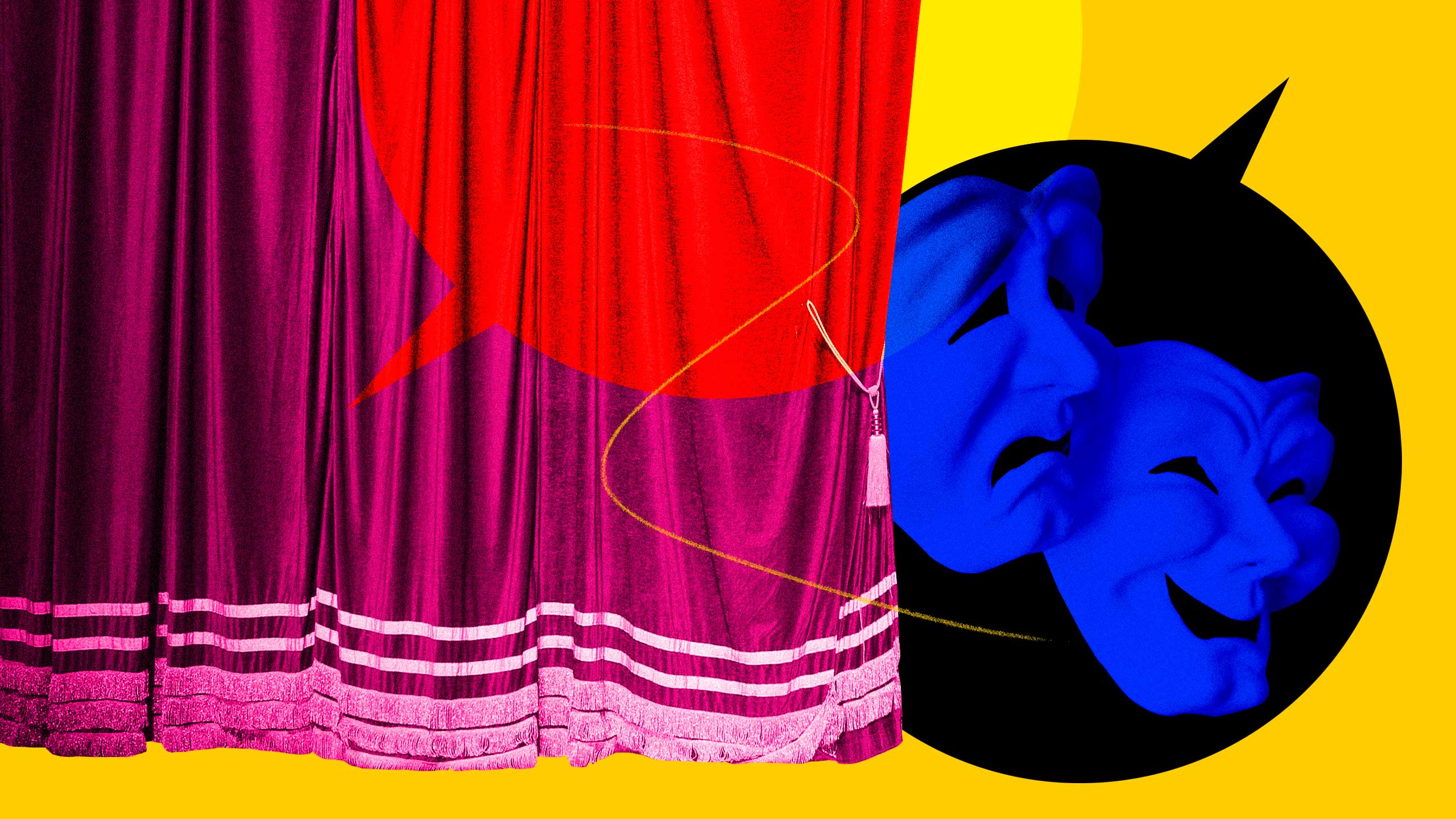

 Why you can trust Xtra
Why you can trust Xtra


